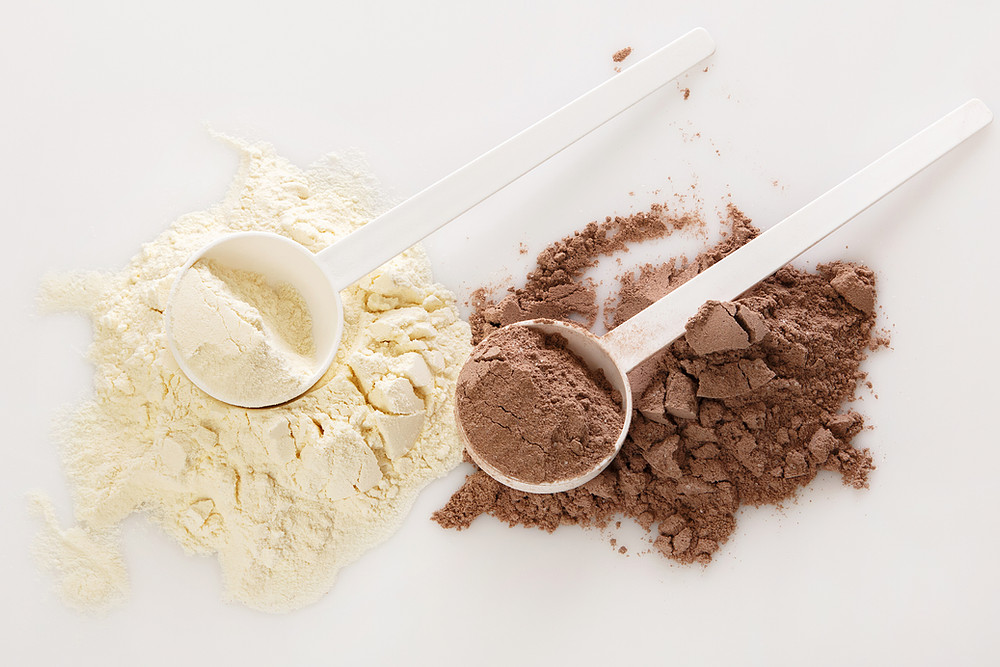Which is Better for You: Milk Protein Isolate or Casein?
Our health is important to us, and we want to ensure we get the most out of the foods we eat. Proteins are an essential part of our diet, but with so many different types on the market, it can be hard to know which is best for us. Two popular types of protein powders are milk protein isolate and casein.
In this article, we’ll end the argument of milk protein isolate vs. casein. We’ll be discussing the pros and cons of each type, so you can make an informed decision about which one is right for you.

What is milk protein isolate?
Milk protein isolate is a concentrated form of whey protein. Whey protein is the liquid left over when milk is coagulated during cheese production.
Milk protein isolate is made by further processing whey protein. The lactose and fat are removed, leaving about 90% protein behind in a powder.
This powder is typically mixed with water or milk to create a protein shake. Milk protein isolate can also be added to smoothies or baking recipes.
What are the benefits of milk protein isolate?
There are a few reasons you might choose milk protein isolate over other types of protein powder.
Since it’s a concentrated form of whey protein, milk protein isolate is a great source of amino acids. Amino acids are the building blocks of muscle, so if you’re looking to build muscle or improve your athletic performance, milk protein isolate can be a helpful addition to your diet.
Milk protein isolate is also easy to digest and absorb. This is because it doesn’t contain any of the lactose or fat in whey protein. If you have trouble digesting dairy products, milk protein isolate may be a good option.
What are the drawbacks of milk protein isolate?
Just like with any other food, there are a few potential drawbacks to using milk protein isolate.
First, milk protein isolate can be more expensive than other types of protein powder. This is because it requires more processing than whey protein or casein.
If you’re on a budget, another type of protein powder may be a better option for you.
Another potential downside of milk protein isolate is that it doesn’t mix well with other protein powder types. This can be a problem if you’re making a shake or smoothie, as you may have clumps of powder in your drink.
To avoid this, mix milk protein isolate with a liquid before adding it to your recipe.
What is casein?
Casein is another type of protein that’s derived from milk. Unlike whey protein, casein is the solid part of milk left over when cheese is made.
Casein is a slow-digesting protein, which means it’s absorbed more slowly by the body. This makes it a great option before bed, as it can help prevent muscle breakdown overnight.
Casein is also typically lower in lactose than whey protein, so that it may be a good option for lactose intolerant people.
What are the benefits of casein?
There are a few benefits of taking casein protein powder.
As we mentioned earlier, casein is a slow-digesting protein, which makes it ideal for taking before bed. Casein is a good option for you if you’re looking to prevent muscle breakdown and improve your recovery time.
Casein is also a good source of calcium. Calcium is important for bone health, so casein can be a helpful addition to your diet if you’re looking to improve your bone density.
Lastly, casein is typically lower in lactose than whey protein. This means it’s easier for the body to digest and absorb. Casein may be a better option for you if you have trouble digesting dairy products.
What are the drawbacks of casein?
Like with any other food, casein protein powder has a few potential drawbacks.
As mentioned above, casein is a slow-digesting protein. It can take longer for your body to absorb and use the amino acids.
So, which is better for you: milk protein isolate or casein?
The answer to this question depends on your individual needs and goals.
Milk protein isolate is a great option if you’re looking to build muscle or improve your athletic performance. It’s a concentrated form of whey protein, which makes it a good source of amino acids. Milk protein isolate is also easy to digest and absorb.
This all boils down to one simple question: what are you looking to get out of your protein powder? Milk protein isolate is a great option if you’re looking for a quick and easy way to improve your muscle mass or performance.
However, casein might be a better option for you if you’re looking for a slow-digesting protein that can help prevent muscle breakdown overnight.
Read the label carefully, no matter which type of protein powder you choose. Some protein powders are loaded with sugar and other additives, so choosing a quality product that fits your needs is important.













